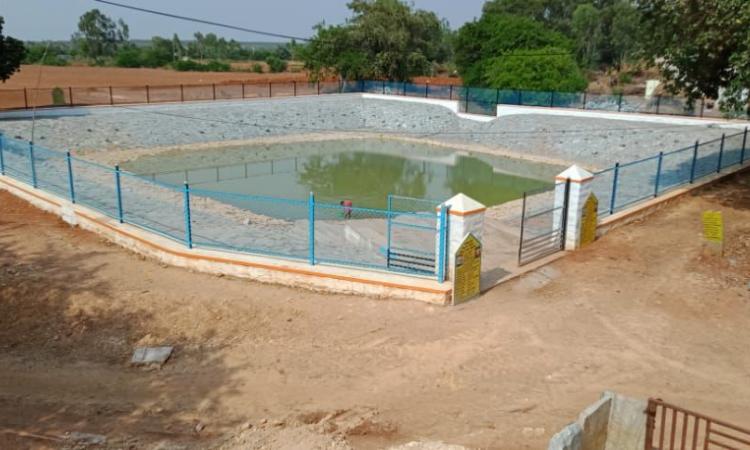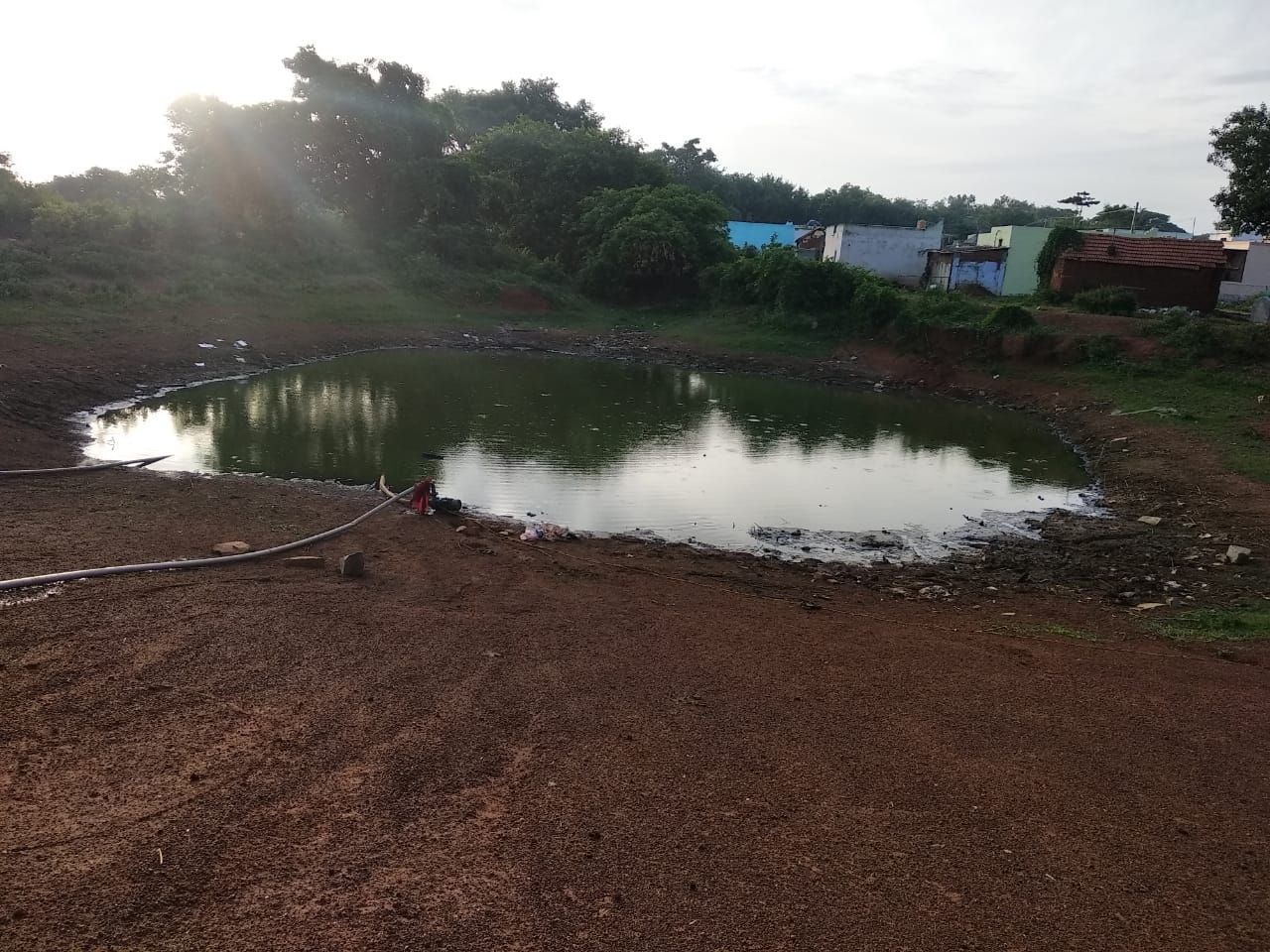
For over 1,200 livestock of Cheemanahalli, located in the Abludu Gram Panchayat of Sidlaghatta Block, Chikkaballapur District, the village’s cattle pond is the only source of drinking water. The area is predominantly rain-fed and the village experiences water scarcity due to low rainfall and excess groundwater extraction. The pond, thus, is crucial to the survival of the village’s 148 families. However, clogging due to accumulated silt had reduced the pond’s capacity and rendered its water unfit to drink.
Siltation over the years, leading to a reduction in storage capacity, led to the water in these ponds drying up much before monsoons, aggravating the water crisis in the village. The situation further increased drudgery, especially among women. In addition to spending more time in water collection or household needs, they also had to walk their cattle and ruminants to far away locations in order to access drinking water.
“Unlike farmers who can afford bore wells, 76 poor farmers like me depend solely on the cattle pond for our livelihood. We have little land and depend entirely on cattle farming. The cattle pond is the basis of all our lives,” says Narasappa, a farmer from Cheemanahalli village.
As part of Foundation for Ecological Security’s (FES) efforts with the Cheemanahalli community since 2018 to protect, restore and manage their water commons, the Grama Parisara Abhivruddhi Samiti (GPAS) was formed.
Recognized by the Abludu Gram Panchayat as its sub-committee under the Karnataka Panchayat Raj Act 1993, 61A, the Samiti provides a platform for representation to the entire village community irrespective of gender and caste. Along with the Gram Panchayat, FES works closely with the Samiti and provides essential technical guidance on the various initiatives planned in the village.

Together with the Panchayat and FES, the Samiti discussed ways to revive the village pond. In 2019-20, they submitted a work demand, estimated at INR 16 lakhs to the Abludu Gram Panchayat. Once it was approved, the Samiti oversaw the pond’s desiltation and renovation carried out under the Mahatma Gandhi National Rural Employment Guarantee Scheme (MGNREGS).
Given the pond’s criticality as a water source, the village community prioritized and actively participated in the desiltation and renovation process. The work also provided employment to the communities, reducing migration in search of work. While providing communities alternate means to earn a livelihood, such initiatives also enhance the rural economy and make it self-sufficient.
“The cattle pond revival under MGNREGS provided our family an alternate means of livelihood. The income earned was invested in cattle which will bring us additional income in the coming years. FES’s continuous support and technical assistance have ensured water for our cattle. The GPAS setup manages and protects this water source,” says Manjamma, Village Institution Member, Cheemanahalli village.
As a result of the activity, which provided work to around 150 individuals from Cheemanahalli and the nearby villages, the pond now has a storage capacity of 8164.80 TCM. The pond, which filled up after subsequent monsoons now has adequate water for the village’s livestock and the community’s needs, while also providing water to around 300 livestock from 2 neighbouring villages.
Edited by Sahana Srinath (FES) and Kiran Singh (FES)